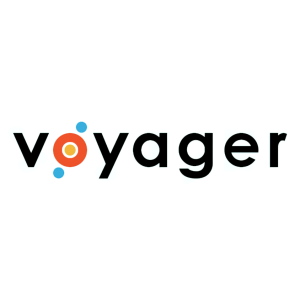Transition Bio and Voyager Announce Collaboration to Advance Small Molecules Targeting TDP-43 in ALS and Frontotemporal Dementia
Rhea-AI Summary
Voyager Therapeutics (Nasdaq: VYGR) and Transition Bio announced a drug discovery collaboration and license option agreement on November 10, 2025 to discover selective small molecules targeting TDP-43 for ALS and frontotemporal dementia (FTD).
Under the deal, Transition Bio will discover and optimize small molecules through nomination of a development candidate, at which point Voyager has an option to license worldwide rights. Transition Bio received a single-digit million-dollar upfront payment and may earn research, development, commercial and net-sales milestone payments totaling up to $500 million, plus royalties in the high single-digit to low double-digit range. TDP-43 pathology is cited as present in over 90% of ALS cases and up to 45% of FTD cases.
Positive
- Up to $500M in potential milestone payments
- Royalties of high single-digit to low double-digit on net sales
- Voyager has a worldwide exclusive license option upon candidate nomination
- TDP-43 pathology prevalence: >90% ALS, up to 45% FTD
Negative
- None.
News Market Reaction
On the day this news was published, VYGR gained 0.71%, reflecting a mild positive market reaction. Argus tracked a peak move of +12.5% during that session. Our momentum scanner triggered 2 alerts that day, indicating moderate trading interest and price volatility. This price movement added approximately $2M to the company's valuation, bringing the market cap to $236M at that time.
Data tracked by StockTitan Argus on the day of publication.
CAMBRIDGE, United Kingdom and LEXINGTON, Mass., Nov. 10, 2025 (GLOBE NEWSWIRE) -- Transition Bio, a drug discovery company focused on unlocking traditionally “undruggable” targets by leveraging biomolecular condensates, and Voyager Therapeutics (Nasdaq: VYGR), a biotechnology company dedicated to leveraging genetics to treat neurological diseases, have entered into a drug discovery collaboration and license option agreement. The companies will collaborate to discover and develop novel, selective small molecules for people suffering from amyotrophic lateral sclerosis (ALS) and frontotemporal dementia (FTD) with TDP-43 pathology. TDP-43 pathology is common in many neurodegenerative diseases, including over
Under the terms of the partnership, Transition Bio is responsible for the discovery and optimization of small molecules targeting TDP-43 until nomination of a development candidate, upon which Voyager will have an option to license the worldwide exclusive rights to develop and commercialize the program. Transition Bio has received a single-digit million-dollar upfront payment and is eligible to receive potential research, development, commercial and net sales milestone payments totaling up to
“This collaboration with Transition Bio fits into Voyager’s vision of building a multi-modality neurotherapeutic pipeline that matches the optimal modality to each target,” said Alfred W. Sandrock, Jr., M.D., Ph.D., President & CEO of Voyager and member of the Transition Bio Board of Directors. “Historically, TDP-43 has been difficult to address therapeutically because of the complexity of targeting toxic forms of the protein without impacting the nontoxic forms that are necessary to the cell. Transition Bio’s molecular condensate technology uniquely identifies small molecules that aim to precisely correct the mislocalization of TDP-43 without abolishing its important functional activity.”
“By working closely with the Voyager team, we will be able to leverage a world-leading translational team with deep expertise in ALS and FTD,” said G. Kelly Martin, Executive Chairman of Transition Bio. “We look forward to advancing this program together to achieve our shared goal of transforming the lives of patients with these devastating diseases.”
About Transition Bio
Transition Bio, Inc. is a private biotechnology company that is unlocking a fundamental control layer – biomolecular condensate – to discover transformative medicines for diseases driven by “undruggable” targets. Our pipeline includes a program in MYC-driven cancers expected to reach development candidate nomination in 2025, programs for other difficult-to-treat cancers, as well as programs for neurological disorders with a high unmet need such as ALS, FTD and myotonic dystrophy type 1. Transition Bio’s platform utilizes microfluidics and machine learning to discover and optimize small molecules for these diseases. We are backed by top institutional & corporate investors and have signed multiple collaborations with leading industry partners. For more information, visit http://www.transitionbio.com.
About Voyager Therapeutics
Voyager Therapeutics, Inc. (Nasdaq: VYGR) is a biotechnology company dedicated to leveraging the power of human genetics to modify the course of – and ultimately cure – neurological diseases. Our pipeline includes programs for Alzheimer’s disease, Friedreich’s ataxia, Parkinson’s disease, amyotrophic lateral sclerosis (ALS), and multiple other diseases of the central nervous system. Many of our programs are derived from our TRACER™ AAV capsid discovery platform, which we have used to generate novel capsids and identify associated receptors to potentially enable high brain penetration with genetic medicines following intravenous dosing. Some of our programs are wholly owned, and some are advancing with partners including Alexion, AstraZeneca Rare Disease; Novartis Pharma AG; and Neurocrine Biosciences, Inc. For more information, visit http://www.voyagertherapeutics.com.
Voyager Forward-Looking Statements
This press release contains forward-looking statements for the purposes of the safe harbor provisions under The Private Securities Litigation Reform Act of 1995 and other federal securities laws. The use of words such as “will,” “anticipated,” “expect,” “believe,” “potential,” or “may,” or “continue,” and other similar expressions are intended to identify forward-looking statements.
For example, all statements Voyager makes regarding Voyager’s vision of building a multi-modality neurotherapeutic pipeline that matches the optimal modality to each target, including developing, in collaboration with Transition Bio, small molecules to address the underlying cause of, and ultimately, treat ALS and FTD, are forward looking.
All forward-looking statements are based on estimates and assumptions by Voyager’s management that, although Voyager believes such forward-looking statements to be reasonable, are inherently uncertain and subject to risks and uncertainties that may cause actual results to differ materially from those that Voyager expected. Such risks and uncertainties include, among others, the expectations and decisions of regulatory authorities; the timing, initiation, conduct and outcomes of Voyager’s preclinical and clinical studies; the availability of data from clinical trials; the availability or commercial potential of product candidates under collaborations; the success of Voyager’s wholly owned and partnered product candidates; the willingness and ability of Voyager's collaboration partners to meet obligations under collaboration agreements with Voyager and their projections with respect to such programs; the continued development of Voyager’s technology platforms, including Voyager’s TRACER platform and its non-viral discovery platform; Voyager’s scientific approach and program development progress, and the restricted supply and increased costs of critical research components; the development by third parties of capsid identification platforms that may be competitive to Voyager’s TRACER capsid and nonviral discovery platform and programs; Voyager’s ability to create and protect intellectual property rights associated with the TRACER capsid and nonviral discovery platforms, the capsids and ligands identified by the platforms, and the development clinical candidates and related data from Voyager’s pipeline programs; the possibility or the timing of Voyager’s receipt of program reimbursement, development or commercialization milestones, option exercise, and other payments under Voyager’s existing licensing or collaboration agreements; the ability of Voyager to negotiate and complete licensing or collaboration agreements with other parties on terms acceptable to Voyager and the third parties; the success of programs controlled by third-party collaboration partners in which Voyager retains a financial interest; the ability to attract and retain talented directors, employees, and contractors; and the sufficiency of Voyager’s cash resources to fund its operations and pursue its corporate objectives.
These statements are also subject to a number of material risks and uncertainties that are described in Voyager’s most recent Annual Report on Form 10-K filed with the Securities and Exchange Commission. All information in the press release is as of the date of this press release, and any forward-looking statement speaks only as of the date on which it was made. Voyager undertakes no obligation to publicly update or revise this information or any forward-looking statement, whether as a result of new information, future events or otherwise, except as required by law.
Voyager Therapeutics® is a registered trademark; TRACER™ and Voyager NeuroShuttle™ are trademarks, of Voyager Therapeutics, Inc.
- Jo, M., Lee, S., Jeon, YM. et al. The role of TDP-43 propagation in neurodegenerative diseases: integrating insights from clinical and experimental studies. Exp Mol Med 52, 1652–1662 (2020). https://doi.org/10.1038/s12276-020-00513-7
- TBD – reference re TDP-43 rates in FTD; consider Ubiquitinated TDP-43 in Frontotemporal Lobar Degeneration and Amyotrophic Lateral Sclerosis | Science (2006, but highly cited in the field)
Voyager Contacts:
Trista Morrison, NACD.DC, tmorrison@vygr.com
Investors: Sarah McCabe, smccabe@jpa.com
Media: Adam Silverstein, adam@scientpr.com
Transition Bio Contact:
Martin Kulander, Co-President & COO, mkulander@transitionbio.com








